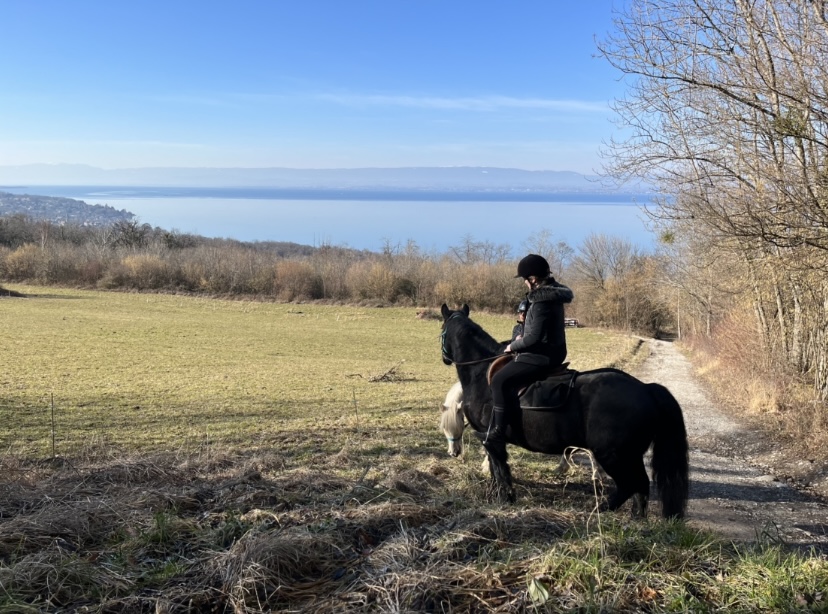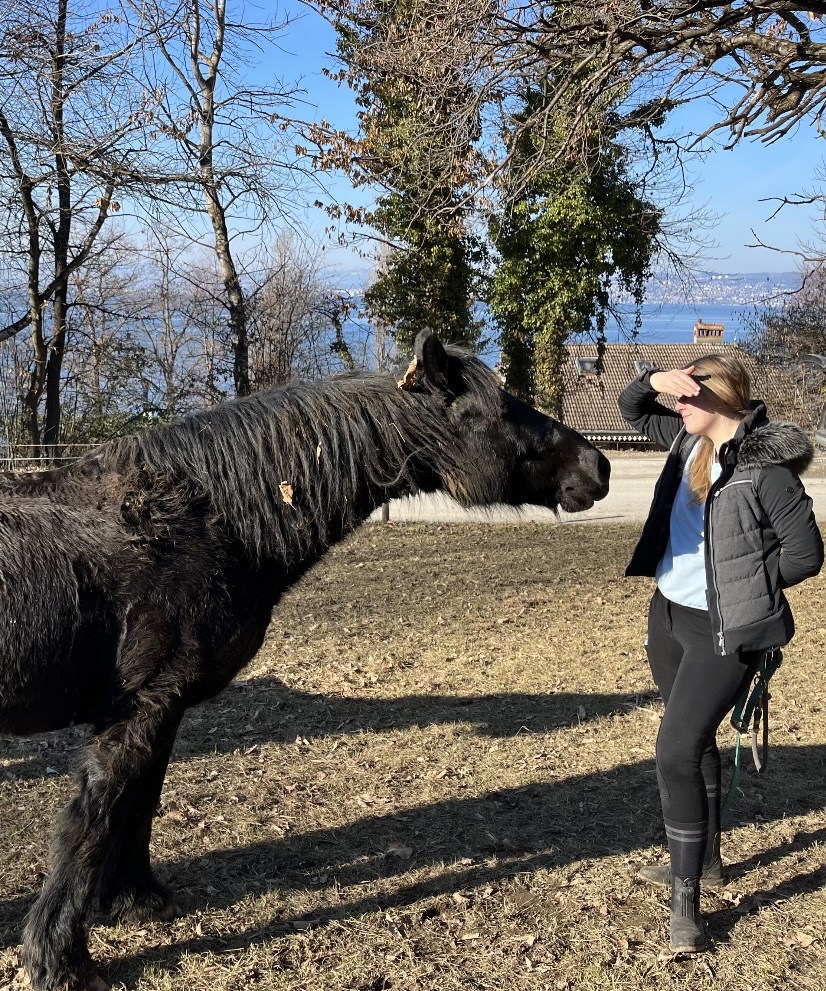Our collaborators have a double life: Emma Poulain
Share a part of the life of our collaborators by discovering their hobbies! This month, let's talk about Emma Poulain, our Communications Assistant and her passion for horsemanship.
 What is your double life?
What is your double life?
I do horseback riding, more particularly the so-called "foot work", so ethological horsemanship.
When and how did you start?
I have been riding since I was about 4 years old, my mother has always ridden horses too, so coming from Normandy (France), I logically followed her example!
I first practiced in a horse riding club, and I took a break after high school because I was going abroad. After that, with my academic studies, I didn't allocate any more time to this sport (it must be said that finding an equestrian center close to Lyon, accessible by public transport and whose schedules corresponded to mine was quite complicated...).
In 2021, my mom was looking for a horse, and 6 months ago, she finally found an 8 year old Merens horse. So of course I started riding again, and spend (surprisingly) a lot more time at her house on weekends 😉
What do you like about psychoanalysis?
In the " traditional " British riding, what I liked the most was the bonding of my horse group. It was very pleasant to meet my "horse friends" twice a week, and to clear my head. I would do everything: dressage, jumping, and I was lucky enough to be enrolled in a horse riding school that had plenty of land, including a cross-country course, so I could also do cross-country when the weather was good, but also horseball, vaulting...
But since my mother owns a horse, I have a very different vision than when I used to ride in a club. In the schools where I used to ride, the horses lived in stalls, and went out almost only to work in the indoor or outdoor riding arena (and when the riders wanted to take them out to graze in the field for example). Having now a horse living in a field in Haute-Savoie, the context is very different! My goal is to create a real bond with the horse, because if I want to ride it, it doesn't happen in a fenced-in area like a riding arena, but on trails in the woods. You have to be able to control your mount in any situation because an accident can happen quite easily with such a powerful animal!
I then learned about the techniques of horsemanship in order to integrate them in my practice. It is about training your horse in the most gentle way possible to create a trusting bond between the owner and their horse and to ensure that the horse is not forced to obey in a negative way, so that it can also flourish in its relationship with its owner.
And in your daily life, how does your passion fit in?
As mentioned before, my horse lives in a field in Haute-Savoie (France), so it is not a daily activity for me. Whenever I am available on weekends, I go to Haute-Savoie to relax, enjoy the fresh mountain air, and to spend time with my horse, obviously. I have really taken a liking to the practice on foot. Before I got this horse, I was thinking about the rides I could do, the trails I could gallop on, that kind of thing, but since my horse joined us, I love to spend time observing him, analyzing his behavior with other horses and humans, it helps me figure out how to best handle him and work together.
Have you acquired skills that you use in your professional life?
Of course, as in any activity, there are lessons and skills to learn! In my case, working in communication, it is precisely the type of communication that differs from what we experience on a daily basis that amuses me. Horsemanship, and ethological riding in general, teaches us to be more patient, to communicate in a positive way, to respect the space of the other one, and especially not to rush anything.
To illustrate what I am saying, if I ask my horse to back up, for the first lessons, it will be a matter of pushing lightly on the chest of the horse. As soon as the horse gives in, the pressure is immediately removed, which is called negative reinforcement. Unlike what we may think, negative reinforcement is not a bad thing, it is simply a matter of removing the pressure as soon as the horse gives the right answer to our command (voice and/or gesture). These are exercises that require a lot of patience and understanding because they have to be repeated frequently, and just like humans, sometimes the horse is not in a good working spirit! Mine for example is very stubborn and can be extremely annoying when he doesn't want to work. This is where you have to assert yourself, show your leadership position, even if it means working for a very short time so as not to frustrate the horse.
All in all, it is best to be attentive to your horse's behavior, to observe it a lot in order to work in good conditions so that you only get positive results from it! Similar to working in a team after all...
Thank you Emma for your answers!
